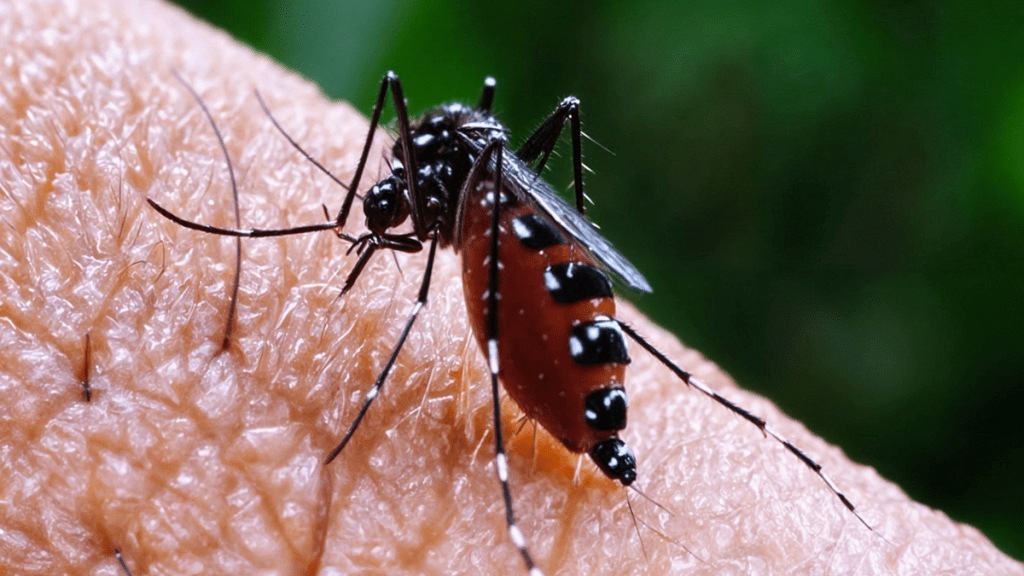Dengue in Benguluru: Dengue surge grips Karnataka as the state reports more than 5000 cases of the mosquito-borne disease. According to the official data, over 5,300 cases have been reported in the state from January to June. Meanwhile, Bengaluru has reported more than 1000 dengue cases in just 20 days.
Amid the surge in dengue cases, Karnataka Chief Minister Siddaramaiah on Tuesday directed officials to take seriously the detection and treatment of the viral infection. The Chief Minister conducted a meeting with Health Minister Dinesh Gundu Rao and senior officers also instructed them to ensure availability of treatment, medicine and platelets. The state has reported five deaths so far.
Additionally, the city municipal corporation, Bruhat Bengaluru Mahanagara Palike (BBMP), has decided to visit half of the households in Bengaluru for a larval survey to control dengue incidences.
BBMP will also procure 38,000 NS1 antigen kits from the Drugs Control Department to test those showing symptoms of dengue, Deccan Herald reported. “We have created one block for every 1,000 households. A team of health inspectors, ASHA workers, NSS volunteers and nursing students will visit 14 lakh houses situated in slums, densely populated pockets, and low-lying areas. The aim is to destroy mosquito breeding grounds and collect samples of people who suffer from fever,” the BBMP chief said as quoted by Deccan Herald.
According to the officials records, Mahadevapura and East zones have reported the highest number of dengue cases. While Bengaluru, Chikkamagaluru, Mysuru, Haveri, Shivamogga, Chitradurga, and Dakshina Kannada districts have reported a majority of the cases, 1,230 have been reported in BBMP limits alone, as per The Hindu. Moreover, the health minister also instructed the health official to test all those who report with dengue-like symptoms.
What is dengue?
Dengue is a viral illness caused by the bite of Aedes Aegypti mosquito. The World Health Organization (WHO) warns that about half of the world’s population is now at risk of dengue with an estimated 100–400 million infections occurring each year.
Dr Tushar Tayal, Lead Consultant, Department of Internal Medicine, CK Birla Hospital, Gurugram, there are four subtypes of dengue virus and a person can become infected with one subtype only once in their life following which they develop immunity for that particular subtype.
Subsequent infection with a different subtype increases the risk of severe complications, Dr Tayal revealed.
What are the symptoms of dengue?
Symptoms of dengue generally start 1 week after the mosquito bite. The symptoms include:
- high grade fever, headache
- pain behind the eyes,
- nausea
- and joint pain
These symptoms last for approximately five days.
“By the end of this period is when the critical period starts where the BP falls, fluid accumulates in lungs and abdomen and rash develops. Some patients may also show bleeding manifestation. It is extremely important to identify these symptoms and hospitalise the patient urgently as these symptoms may be life threatening. This period is followed by the recovery phase which lasts 3-4 days,” Dr. Tayal told Financial Express.com.
How to treat dengue infection?
There is no specific treatment for dengue infection. According to WHO, the focus is on treating pain symptoms. In most cases, dengue fever can be treated at home with pain medicine.
Acetaminophen (paracetamol) is often used to control pain. Non-steroidal anti-inflammatory drugs like ibuprofen and aspirin are avoided as they can increase the risk of bleeding.
For people with severe dengue, hospitalization is often needed, WHO revealed.
How to prevent dengue infection?
Some Preventive measure that all of us can easily implement are:
- preventing accumulation of still water in houses and surroundings
- spraying Larvicidal insecticides and pesticides in stagnant water
- regular fogging activities in societies and colonies
- use of mosquito nets , aerosolised insecticides in rooms while sleeping
- Use of DEET or Picaridin based insect repellants which can be applied to the skin and clothes
- use of mesh doors and windows wherever practically possible
- Herbal plants which have insect repellant actions may additionally be used
- burning of camphor and Dhoop may offer some additional benefit.
- apply ice or Aloe Vera gel on mosquito bites for symptomatic relief.
